#merciful study
Text
hello lovelies!
i've been absent for so long - i'm so sorry! I was very busy this year completing my honours in english literature! my graduation is tomorrow - life is crazy but i am very proud of myself ! i'll be back soon when i start studying again (but for what i'm not too sure yet!)
much love xx
14 notes
·
View notes
Text
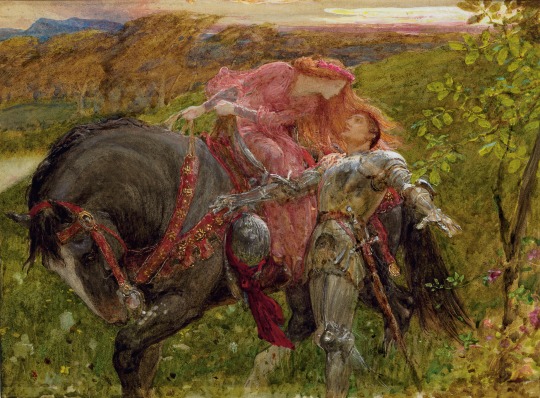
Study for La Belle Dame sans Merci by Frank Dicksee (1902)
#frank dicksee#art#paintings#fine art#1900s#1900s art#romanticism#pre raphaelite#pre raphaelites#painting#british art#british artist#poetry#poetry art#john keats#vintage art#la belle dame sans merci#art study#classic art
1K notes
·
View notes
Text
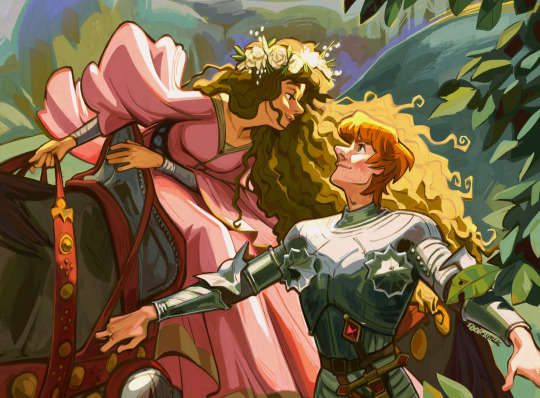
— The Scholar and her Knight
#romione#ron weasley#hermione granger#harry potter#harry potter fanart#hp fanart#my art#ronmione#ron x hermione#hermione x ron#master study#frank dicksee#La Belle Dame Sans Merci#illustration#digital painting#procreate
912 notes
·
View notes
Text
Publishing has always been a fucking nightmare, but now it’s a layer of hell. It’s not enough that writers be good at what they do. Writers have to maintain an active social media presence and cultivate a following. Be available.
They have to be conventionally attractive enough to look good enough to see on a screen, aesthetically pleasing, kind, funny, up-to-date on trends, socially aware but not so controversial that they turn off a brand from California from slapping their discount code on a video promoting a book.
They have to do all of this with no media training, with little help from the companies that are supposed to be doing this for them.
Of course, a lot of this isn't possible for say, the 40-something mother of two who teaches English at a school and writes on the side. She’s boxed out of an already complex industry that already has enough walls.
On some level, I think authors have always marketed themselves a little, but we’ve reached such a crazy point where we’re demanding the author become the influencer. Accessibility in publishing has narrowed from an inch to a sliver. And that inch was hard enough to get in as is.
#This is about traditional publishing but there’s pretty privilege and ageism in self publishing too#I can’t think of the last time I saw an up and coming author recording videos who was over thirty#And frankly that’s a shame#It could be that I’m not looking hard enough#but it’s more likely that algorithms are trained the way they are#truly I don’t think they should have to do any of that at all#And forgive me but (and I know it’s rich because I’m an artist on a platform) but art shouldn’t be at the mercy of an algorithm#Now there’s also something to be said about self publishing becoming easier and easier to achieve success in#And doors opening because of influencer status is real and makes publishing wider in a way#But that doesn’t mean it’s accessible#I’m not gonna plaster my health issues over the wall but that life is certainly not accessible to me!#are you healthy enough to write and make sure people on social media still want to like your stuff#are you mentally well enough to be your own pr#I’m sure people who have studied this have more to say and have said it better but this is what I’ve observed#writing#publishing#publishing industry
747 notes
·
View notes
Photo
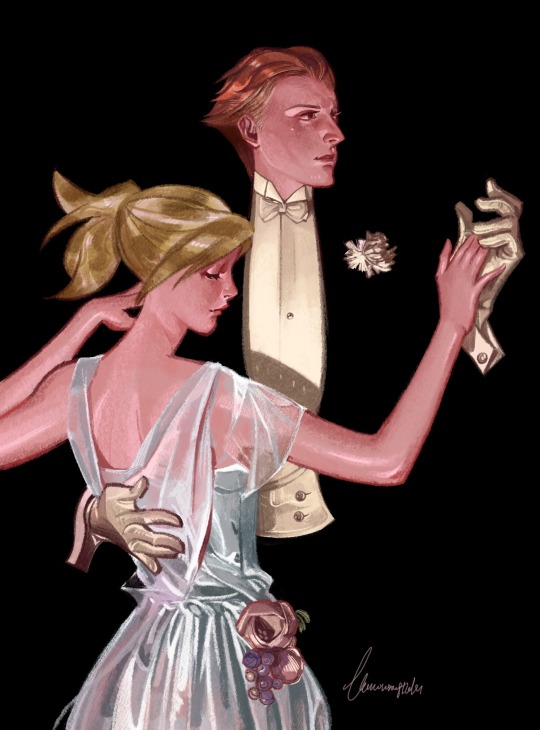
{JC Leyendecker pose study} in Moicy. Did this to challenge myself to see how I work with photo reference and accuracy. it was SO HARD
#jc leyendecker#leyendecker study#Moicy#moira x mercy#overwatch fanart#overwatch ships#moira o'deorain#angela ziegler#procreate art
2K notes
·
View notes
Text
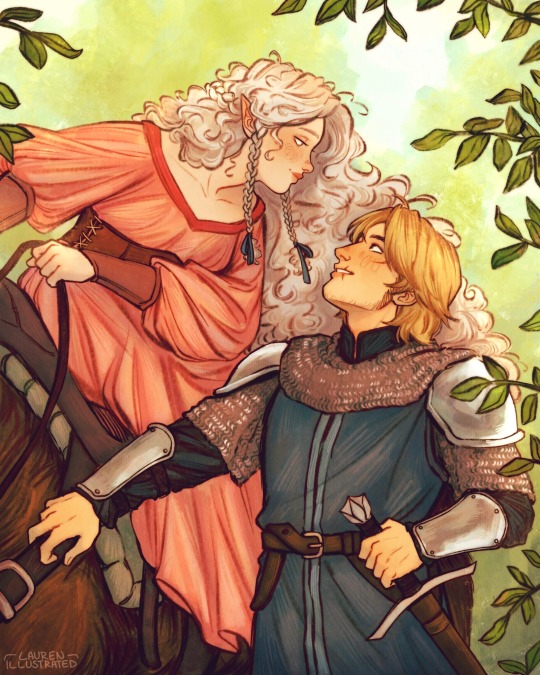
Quynn and Connell inspired by “La belle dame sans merci” by Frank Dicksee
#frank dicksee#digital painting#fantasy art#fantasy illustration#fantasy character#fantasy drawing#fantsy art#elf oc#knight oc#character art#drawing#digital drawing#illustration#digital art#illustrator#character design#character illustration#painting study#art study#la belle dame sans merci
801 notes
·
View notes
Text
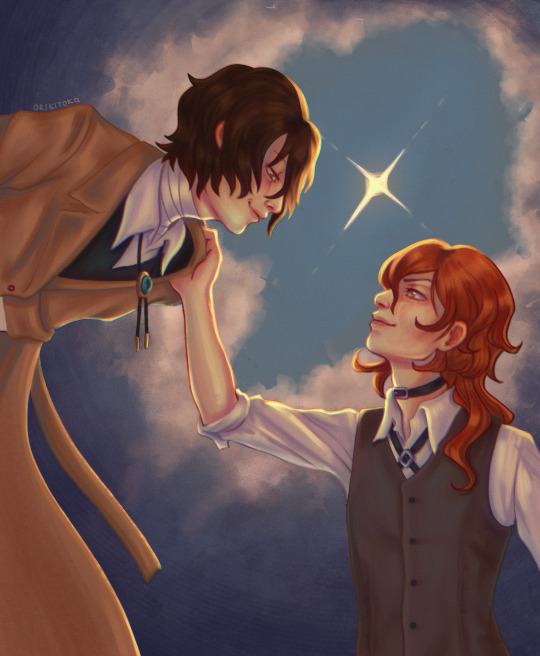
when you and your enemy/rival/ex-partner have some strange soulmate thing going on
#this one has been a wip for way too long…#this was supposed to be another study but oh boy did that not work out at all#nothing except inspiration for the poses remained… it was supposed to be a study of La Belle Dame Sans Merci#a wonderful poem which inspired a lot of beautiful artwork but it just didn’t really work out as study for me T_T#bungou stray dogs#bungou stray dogs#bsd#bsd fanart#soukoku#osamu dazai#bsd dazai#chuuya nakahara#bsd chuuya#my art
495 notes
·
View notes
Text

1 Timothy 1:12-17 (GNT). “I give thanks to Christ Jesus our Lord, who has given me strength for my work. I thank him for considering me worthy and appointing me to serve him, even though in the past I spoke evil of him and persecuted and insulted him. But God was merciful to me because I did not yet have faith and so did not know what I was doing. And our Lord poured out his abundant grace on me and gave me the faith and love which are ours in union with Christ Jesus. This is a true saying, to be completely accepted and believed: Christ Jesus came into the world to save sinners. I am the worst of them, but God was merciful to me in order that Christ Jesus might show his full patience in dealing with me, the worst of sinners, as an example for all those who would later believe in him and receive eternal life. To the eternal King, immortal and invisible, the only God—to him be honor and glory forever and ever! Amen.”
“Grace on Display” By In Touch Ministries:
“Even the worst of sinners is welcome to receive God's extravagant mercy and love.”
“Paul described himself as the worst of sinners and as someone to whom the Lord had expressed His favor and love (1 Tim. 1:16 NIV). How could he be both? That’s the power of God’s grace: Though sinners, we become spiritually alive and receive a new purpose for living.
After Paul met the Savior, he cared deeply about those who did not yet know God, and he also desired to help Christians grow in their faith. For the rest of his life, he shared the gospel, encouraged fellow believers, and met the needs of others. He acted as God’s ambassador to the Gentiles, and his letters became biblical wisdom for future generations.
Through the transforming work of the Holy Spirit, Paul began to display more and more Christlike qualities. In his writings, we see compassion, great humility, and appreciation for God’s blessings. Only the grace of God could enable a well-educated and influential man to count all his credentials a “loss in view of the surpassing value of knowing Christ Jesus my Lord” (Philippians 3:8).
Paul’s life is an example of God working through sinners and transforming them. The Holy Spirit seeks to do the same for you and me. Are you allowing God’s favor and love to work within you?”
[Photo by Jametlene Reskp at Unsplash]
#1 timothy 1:12-17#gods grace#gods mercy#grace and mercy#god loves you#bible verses#bible truths#bible scriptures#bible quotes#bible study#studying the bible#the word of god#christian devotionals#daily devotions#bible#christian blog#god#belief in god#faith in god#jesus#belief in jesus#faith in jesus#christian prayer#christian life#christian living#christian faith#christian inspiration#christian encouragement#christian motivation#christianity
58 notes
·
View notes
Text
Mochijun drops wholesome chapter with the main four loving each other:
Ph survivors:

#anime#les memoires de vanitas#the case study of vanitas#vanitas no carte#manga#vnc manga#jun mochizuki#vnc#pandora hearts#ph#Everyone is gonna die#TRAUMA INCOMING#vanitas#have mercy#heartless lady#tumblr
130 notes
·
View notes
Text
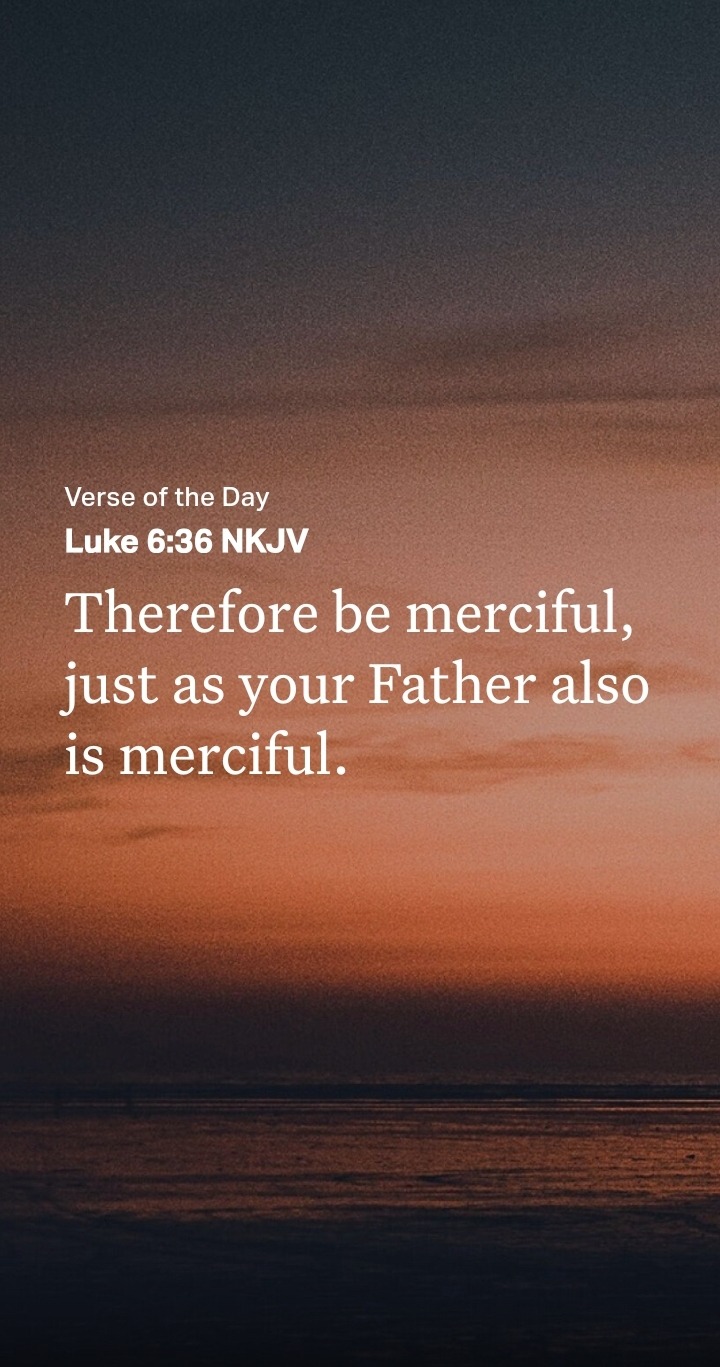
#bible verse#Luke#God#Christianity#bible reading#bible study#christian faith#christian#christians#bible quotes#bible scripture#bible verse of the day#holy bible#bible#Jesus#Christ#Jesus Christ#verse of the day#christian blog#christian quotes#christian encouragement#christian motivation#christian living#quotes#life quotes#faith#faith in god#biblical scripture#scripture#mercy
42 notes
·
View notes
Text

hi. i got sick. still recovering. i feel absolutely terrible. and not just because of my physical condition...i've let my mental health slide despite my awareness of the warning signs, and this illness is just the icing on the cake.
i need to learn to trust myself. know when to listen to myself and when to listen to others and know who to listen to bc if there's one thing i don't lack, it's outside sources of information. ground myself and focus on what is in my control so i don't feel like i'm going crazy and internalizing blame/negativity every time smth bad happens.
everything is temporary, so there is hope. we're just gonna take it day by day, focusing on the present every time and not on how much there is left to do and how many stressors i have left to manage after this one. i'm sorry if this post is kind of all over the place, i'm trying to sort things out with a foggy brain. (i'm so annoyed that i have to sleep for more than half the day to feel normal rn. oh well, at least i'm getting better.) 🤧
on a better note, i got my grade back for the philosophy assignment and i did well 🙂
SMART goals for today:
morning self-care routine ✅
finish half of psyc ch from last week ✅ (i wish their ch sizes and numbers for each week were consistent. last week we had to do 4 ch, and this second ch is the size of 2 regular ch! and this week, the amount of stuff to cover is the same. just lucky it's interesting rn bc the content is really relevant to my personal life...if i could just focus!!)
skincare ✅
night routine ✅
#so strange how our bodies and minds are so closely connected#it's like...once the barriers of my body have been breached by viral infection#the boundaries i had in place for my mental health also dissolved...well it's time to put them back up#no longer will i be at the mercy of things outside of my control 😤#at least i will try very hard not to let myself be 🤞🏻#mental health#coping#studyblr#stemblr#100dop#100 days of productivity#studyspo#study motivation#studyblr community#heyfrithams#heydilli#astudentslifebuoy
27 notes
·
View notes
Photo

Forever in love with Crimson Peak costumes and art direction
#crimson peak#edith cushing#crimson peak fanart#film study#artists on tumblr#the art tag is at my mercy
585 notes
·
View notes
Text
yassen gregorovich. character of all time. he’s a contract killer. he’s babygirl. he makes no damn sense. compels me though
#you ever look at someone and wonder… WHAT is going ON inside their HEAD#i am not even halfway to figuring out what his Deal is but after two whole books of waiting he’s finally BACK!#I AM SO INTERESTED IN THIS MAN#i don’t even want to study him scientifically i just want to watch him with rapt attention while he looks at a teenager with a complex air o#of cold knowledge and ruthless control but also… grace? mercy even?#yassen babygirl you are the main driving force behind my continued reading i’m obsessed#psa i am reading the alex rider series for the first time and just starting eagle strike now pls no spoilers ty 🙏🏻💗#alex rider#yassen gregorovich#eagle strike#ar#em reads alex rider
367 notes
·
View notes
Text

Parable of the Prodigal Son:
Jesus conveyed a profound message about forgiveness, redemption, and the boundless love of God. Let's reframe the narrative within this Christian context, drawing from Luke 15:11-32, and infuse it with additional biblical insights.
A certain man had two sons. The younger son asked for his share of the inheritance and journeyed to a distant land where he squandered his wealth in reckless living. Soon, a severe famine swept through the land, and the young man found himself in dire need.
In his desperation, he sought employment feeding pigs, a job that symbolized his degradation and distance from his upbringing. Yet, in his lowest moment, he came to his senses and decided to return to his father, confessing his sins and seeking forgiveness.
His father, filled with compassion, ran to greet him while he was still far off. Instead of condemnation, the father embraced his wayward son, clothing him in the finest robe and celebrating his return with a lavish feast.
Meanwhile, the older son, who had remained obedient and dutiful, grew resentful at the extravagant welcome given to his brother. But the father, ever merciful, reminded him of the importance of forgiveness and reconciliation.
This parable echoes the essence of divine mercy and the unconditional love of God. Just as the father welcomed back his repentant son, so too does our Heavenly Father eagerly await our return, ready to forgive and restore us to fellowship with Him.
The Prodigal Son reminds us of the importance of humility, repentance, and forgiveness in our Christian journey. It challenges us to examine our attitudes towards others, particularly those who have strayed from the path, and to emulate God's boundless love and compassion.
Broader context:
Parable of the Prodigal Son (Luke 15:11-32):
This is the main passage where the parable is found.
Forgiveness and Reconciliation:
Matthew 18:21-22 - Jesus teaches about forgiveness.
Colossians 3:13 - Encouragement to forgive as the Lord forgave you.
Ephesians 4:32 - Be kind and compassionate, forgiving one another.
Luke 6:37 - Judge not, and you will not be judged; forgive, and you will be forgiven.
God's Unconditional Love:
Romans 8:38-39 - Nothing can separate us from the love of God.
1 John 4:16 - God is love, and whoever abides in love abides in God.
Romans 5:8 - God shows his love for us in that while we were still sinners, Christ died for us.
Ephesians 2:4-5 - But God, being rich in mercy, because of the great love with which he loved us, even when we were dead in our trespasses, made us alive together with Christ.
Repentance and Restoration:
Acts 3:19 - Repent therefore, and turn back, that your sins may be blotted out.
Joel 2:13 - Return to the Lord your God, for he is gracious and merciful, slow to anger, and abounding in steadfast love.
Isaiah 55:7 - Let the wicked forsake his way, and the unrighteous man his thoughts; let him return to the Lord, that he may have compassion on him, and to our God, for he will abundantly pardon.
2 Corinthians 5:17 - Therefore, if anyone is in Christ, he is a new creation. The old has passed away; behold, the new has come.
Celebration in Heaven over Repentance:
Luke 15:7 - Just so, I tell you, there will be more joy in heaven over one sinner who repents than over ninety-nine righteous persons who need no repentance.
Luke 15:10 - Just so, I tell you, there is joy before the angels of God over one sinner who repents.
God's Provision and Restoration:
Philippians 4:19 - And my God will supply every need of yours according to his riches in glory in Christ Jesus.
Psalm 23:1 - The Lord is my shepherd; I shall not want.
Matthew 6:26 - Look at the birds of the air: they neither sow nor reap nor gather into barns, and yet your heavenly Father feeds them. Are you not of more value than they?
God's Sovereignty and Compassion:
Psalm 103:8 - The Lord is merciful and gracious, slow to anger and abounding in steadfast love.
Lamentations 3:22-23 - The steadfast love of the Lord never ceases; his mercies never come to an end; they are new every morning; great is your faithfulness.
James 5:11 - Behold, we consider those blessed who remained steadfast. You have heard of the steadfastness of Job, and you have seen the purpose of the Lord, how the Lord is compassionate and merciful.
Questions:
How does the parable of the Prodigal Son reflect God's unconditional love and forgiveness?
In what ways do we, like the older brother, struggle with forgiveness and harbor resentment towards others?
How can we cultivate a spirit of compassion and reconciliation in our interactions with those who have gone astray?
What steps can we take to emulate the father's example of mercy and grace in our daily lives?
Let us pray:
Heavenly Father, we thank you for the timeless wisdom and grace revealed in the parable of the Prodigal Son. Teach us to extend forgiveness, show compassion, and embrace reconciliation in our relationships, reflecting your boundless love for all your children. Amen.
#ProdigalSon#DivineMercy#Forgiveness#UnconditionalLove#Redemption#Parable#ChristianTeaching#Compassion#Reconciliation#HeavenlyFather#Grace#Mercy#BiblicalWisdom#christianity#christian faith#faith#jesus christ#bible verse#christianlife#faith in jesus#bible scripture#bible#christ#christianty#bible study#salvation#bible quote
20 notes
·
View notes
Text
Corporal Works of Mercy
Feed the hungry.
Give drink to the thirsty.
Shelter the homeless.
Clothe the naked.
Care for the sick.
Help the imprisoned.
Bury the dead.
#studying theology#Corporal Works of Mercy#mercy#corporal#Catholic#Catholicism#Christian#Christianity
245 notes
·
View notes
Text
Clad in Justice and Worth
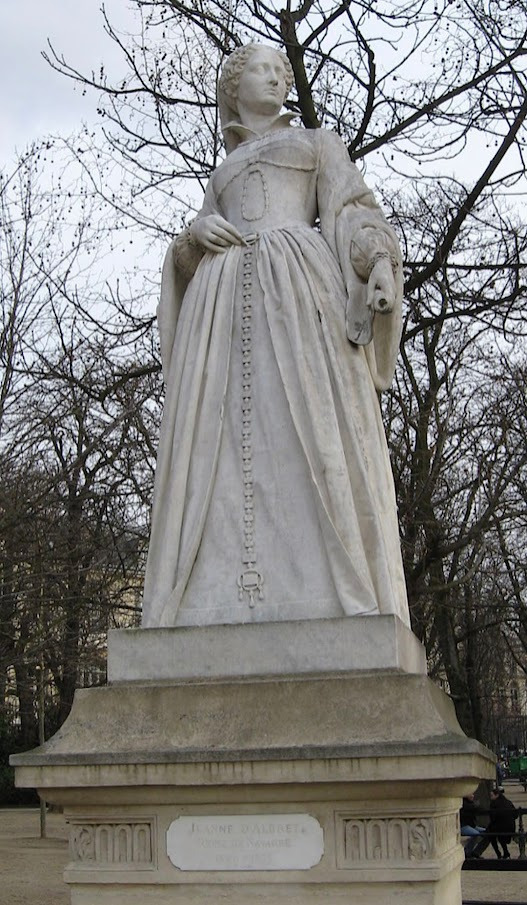
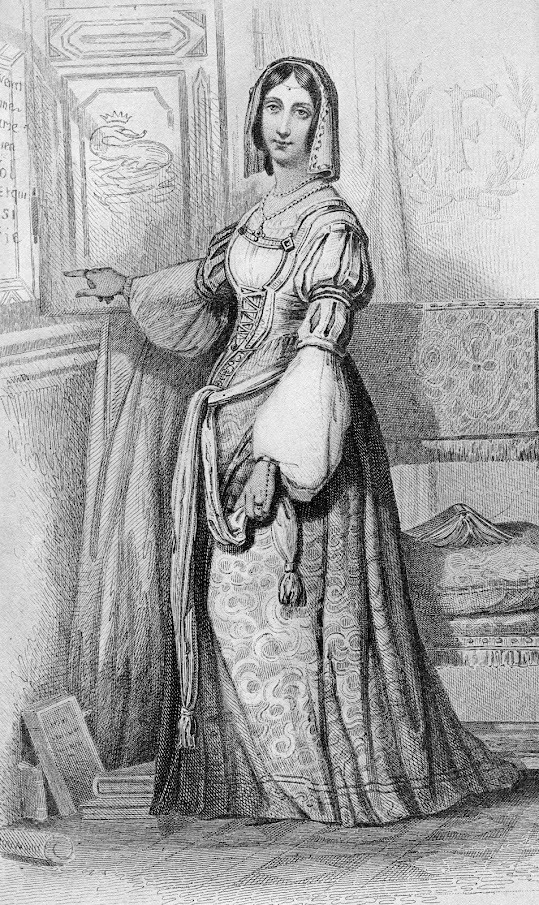
Written for the Inklings Challenge 2023 (@inklings-challenge). Inspired by the lives of Jeanne d'Albret and Marguerite de Navarre, although numerous liberties have been taken with the history in the name of introducing fantastical elements and telling a good story. The anglicization of names (Jeanne to Joan and Marguerite to Margaret) is meant to reflect the fictionalization of these figures.
The heat was unbearable, and it would grow only hotter as they descended into the lowlands. It was fortunate, Joan decided, that Navarre was a mountain country. It was temperate, even cold there in September. It would be sweltering by the sea.
The greater issue ought to have been the presence of Monluc, who would cut Joan’s party off at the Garonne River most like. The soldiers with whom she traveled were fierce, but Monluc had an entire division at the Garrone. Joan would be a prisoner of war if Providence did not see her through. Henry, perhaps, might suffer worse. He might be married to a Catholic princess.
Yet Joan was accustomed to peril. She had cut her teeth on it. Her first act as queen, some twenty years ago, had been to orchestrate the defense of her kingdom, and she was accustomed to slipping through nets and past assassins. The same could not be said of the infernal heat, which assaulted her without respite. Joan wore sensible travel clothing, but the layers of her skirts were always heavy with sweat. A perpetual tightness sat in her chest, the remnant of an old bout with consumption, and however much she coughed it would not leave.
All the same, it would not do to seem less than strong, so she hid the coughing whenever she could. The hovering of her aides was an irritant and she often wished she could just dismiss them all.
“How fare you in the heat, Majesty?”
“I have war in my gut, Clemont,” Joan snapped. “Worry not for me. If you must pester someone, pester Henry.”
He nodded, chastened. “A messenger is here from Navarre. Sent, I suspect, to induce you to return hence.”
“I would not listen to his birdcalls.”
“Young Henry said much the same.”
Joan stuffed down her irritation that Clemont had gone to Henry before he’d come to her. She was still queen, even if her son was rapidly nearing his majority. “Tell him that if the Huguenot leaders are to be plucked, I think it better that we all go together. Tell him that I would rather my son and I stand with our brothers than await soldiers and assassins in our little kingdom.”
Her aide gave a stiff nod. “At once, your Majesty.”
She would breathe easier when they reached the host at La Rochelle. Yet then, there would be more and greater work to do. There would be war, and Joan would be at the head of it.
*
When she awoke in the night, Joan knew at once that something was awry. It was cool. Gone was the blistering heat that had plagued them all day. Perhaps one of the kidnapping plots had finally succeeded.
Certainly, it seemed that way. She was in a cell, cool and dank and no more than six paces square. And yet—how strange! —the door was open.
Rising unsteadily to her feet, Joan crept towards the shaft of moonlight that fell through it. She glanced about for guards, but saw only a single prisoner in dirty clothes standing just beyond the threshold. He was blinking rapidly, as though the very existence of light bewildered him. Then, as Joan watched, he crept forward towards the gate of the jailhouse and out into the free air beyond. Joan listened for a long moment, trying to hear if there was any commotion at the prisoner’s emergence. When she could perceive none, she followed him out into the cool night air.
A lantern blazed. “Come quickly,” a voice hissed. “Our friend the Princess is waiting.”
The prisoner answered in a voice too quiet for Joan to hear. Then, quite suddenly, she heard his companion say, “Who is it that there behind you?”
The prisoner turned round, and Joan’s fingers itched towards her hidden knife. But much to her astonishment, he exclaimed, “Why, it is the lady herself! Margaret!”
But Joan had no opportunity to reply. Voices sounded outside her pavilion and she awoke to the oppressive heat of the day before. Coughing hard, Joan rolled ungracefully from her bed and tried to put away the grasping tendrils of her dream.
“The river is dry, Majesty” her attendant informed her as soon as she emerged from her pavilion, arrayed once again in sensible riding clothes. “The heat has devoured it. We can bypass Monluc without trouble, I deem.”
“Well then,” Joan replied, stifling another cough. “Glory to God for the heat.”
*
They did indeed pass Monluc the next day, within three fingers of his nose. Joan celebrated with Henry and the rest, yet all the while her mind was half taken up with her dream from the night before. Never, in all her life, had her mind conjured so vivid a sensory illusion. It had really felt cool in that jail cell, and the moonlight beyond it had been silver and true. Stranger still, the prisoner and his accomplice had called Joan by her mother’s name.
Joan had known her mother only a little. At the age of five, she had been detained at the French court while her mother returned to Navarre. This was largely on account of her mother’s religious convictions. Margaret of Angoulême had meddled too closely with Protestantism, so her brother the king had seen fit to deprive her of her daughter and raise her a Catholic princess.
His successor had likewise stolen Henry from Joan, for despite the king’s best efforts she was as Protestant as her mother. Yet unlike Margaret, Joan had gone back for her child. Two years ago, she had secretly swept Henry away from Paris on horseback. She’d galloped the horses nearly to death, but she’d gotten him to the armed force waiting at the border, and then at last home to Navarre. Sometimes, Joan wondered why her own mother had not gone to such lengths to rescue her. But Margaret’s best weapons had been tears, it was said, and tears could not do the work of sharp swords.
The Navarre party arrived at La Rochelle just before dusk on the twenty-eighth of September. The heat had faltered a little, to everyone’s great relief, but the air by the sea was still heavy with moisture. The tightness in Joan’s chest persisted.
“There will be much celebration now that you have come, Your Majesty,” said the boy seeing to her accommodations. “There’s talk of giving you the key to the city, and more besides.”
Sure enough, Joan was greeted with applause when she entered the Huguenot council. “I and my son are here to promote the success of our great cause or to share in its disaster,” she said when the council quieted. “I have been reproached for leaving my lands open to invasion by Spain, but I put my confidence in God who will not suffer a hair of our heads to perish. How could I stay while my fellow believers were being massacred? To let a man drown is to commit murder.”
*
Sometimes it seemed that the men only played at war. The Duke of Conde, who led the Huguenot forces, treated it as a game of chivalry between gentlemen. Others, like Monluc, regarded it as a business; the mercenaries he hired robbed and raped and brutalized, and though be bemoaned the cruelty he did nothing to curtail it.
There were sixty-thousand refugees pouring into the city. Joan was not playing at war. When she rose in the mornings, she put poultices on her chest, then went to her office after breaking her fast. There was much to do. She administered the city, attended councils of war, and advised the synod. In addition, she was still queen of Navarre, and was required to govern her own kingdom from afar.
In the afternoons, she often met with Beza to discuss matters of the church, or else with Conde, to discuss military matters. Joan worked on the city’s fortifications, and in the evenings she would ride out to observe them. Henry often joined her on these rides; he was learning the art of war, and he seemed to have a knack for it.
“A knack is not sufficient,” Joan told him. “Anyone can learn to fortify a port. I have learned, and I am a woman.”
“I know it is not sufficient,” the boy replied. “I must commit myself entirely to the cause of our people, and of Our Lord. Is that not what you were going to tell me?”
“Ah, Henry, you know me too well. I am glad of it. I am glad to see you bear with strength the great and terrible charge which sits upon your shoulders.”
“How can I help being strong? I have you for a mother.”
At night, Joan fell into bed too exhausted for dreams.
*
Yet one night, she woke once again to find her chest loose and her breathing comfortable. She stood in a hallway which she recognized at once. She was at the Château de Fontainebleau, the place of her birth, just beyond the door to the king’s private chambers.
“Oh please, Francis, please. You cannot really mean to send him to the stake!” The voice on the other side of the door was female, and it did not belong to the queen.
A heavy sigh answered it. “I mean to do just that, ma mignonne. He is a damned heretic, and a rabble-rouser besides. Now, sister, don’t cry. If there’s one thing I cannot bear, it is your weeping.”
At those words, a surge of giddiness, like lightning, came over Joan’s whole body. It was her own mother speaking to the king. She was but a few steps away and they were separated only by a single wooden door.
“He is my friend, Francis. Do you say I should not weep for my friends?”
A loud harumph. “A strange thing, Margaret. Your own companions told me that you have never met the man.”
“Does such a triviality preclude friendship? He is my brother in Our Lord.”
“And I am your true brother, and your king besides.”
“And as you are my brother—” here, Margaret’s voice cracked with overburdening emotion. She was crying again, Joan was certain. “As you are my brother, you must grant me this boon. Do not harm those I love, Francis.”
The king did not respond, so Joan drew nearer to the door. A minute later, she leapt backwards when it opened. There stood her mother, not old and sick as Joan had last seen her twenty years before, but younger even than Joan herself.
“If you’ve time to stand about listening at doors, then you are not otherwise employed,” Margaret said, wiping her tears from her face with the back of her hand. “I am going to visit a friend. You shall accompany me.”
Looking down at herself, Joan realized that her mother must have mistaken her for one of Fountainbleu’s many ladies-in-waiting. She was in her night clothes, which was really a simple day dress such as a woman might wear to a provincial market. Joan did not sleep in anything which would hinder her from acting immediately, should the city be attacked in the middle of the night.
“As you wish, Majesty,” Joan replied with a curtsey. Margaret raised an eyebrow, and instantly Joan corrected herself: “Your Highness.”
Margaret stopped at her own rooms to wrap herself in a plain, hooded cloak. “What is your name?” she asked.
“Joan, your Highness.”
“Well, Joan. As penance for eavesdropping, you shall keep your own counsel with regards to our errand. Is that clear?”
“Yes, your Highness,” Joan replied stiffly. Any fool could see what friend Margaret intended to visit, and Joan wished she could think of a way to cut through the pretense.
When Margaret arrived at the jail with Joan in tow, the warden greeted her almost like a friend. “You are here to see the heretic, Princess? Shall I fetch you a chair?”
“Yes, Phillip. And a lantern, if you would.”
The cell was nearly identical to the one which Joan had dreamed on the road to La Rochelle. Inside sat a man with sparse gray hair covering his chin. Margaret’s chair was placed just outside the cell, but she brushed past it. She handed the lantern to Joan and knelt down in the cell beside the prisoner.
“I was told that I had a secret friend in the court,” he said. “I see now that she is an angel.”
“No angel, monsieur Faber. I am Margaret, and this is my lady, Joan. I have come to see to your welfare, as best I am able.”
Now, Margaret’s hood fell back, and all at once she looked every inch the Princess of France. Yet her voice was small and choked when she said, “Will you do me the honor of praying with me?”
Margaret was already on her knees, but she lowered herself further. She rested one hand lightly on Faber’s knee, and after a moment, he took it. Her eyes fluttered closed. In the dim light, Joan thought she saw tears starting down her mother’s cheek.
When she woke in the morning, Joan could still remember her mother’s face. There were tears in her hazelnut eyes, and a weeping quiver in her voice.
*
Winter came, and Joan’s coughing grew worse. There was blood in it now, and occasionally bits of feathery flesh that got caught in her throat and made her gag. She hid it in her handkerchief.
“Winter battles are ugly,” Conde remarked one morning as Christmas was drawing near. “If the enemy is anything like gentlemen, they will not attack until spring. And yet, I think, we must stand at readiness.”
“By all means,” Joan replied. “Anything less than readiness would be negligence.”
Conde chuckled, not unkindly. “For all your strength and skill, madame, it is obvious that you were not bred for command. No force can be always at readiness. It would kill the men as surely as the sword. ‘Tis not negligence to celebrate the birth of Our Lord, for instance.”
Joan nodded curtly, but did not reply.
As the new year began, the city was increasingly on edge. There was frequent unrest among the refugees, and the soldiers Joan met when she rode the fortifications nearly always remarked that an attack would come soon.
Then, as February melted into March, word came from Admiral Coligny that his position along the Guirlande Stream had been compromised. The Catholic vanguard was swift approaching, and more Huguenot forces were needed. By the time word reached Joan in the form of a breathless young page outside her office, Conde was already assembling the cavalry. Joan made for the Navarre quarter at once, as fast as her lungs and her skirts would let her.
The battle was an unmitigated disaster. The Huguenots arrived late, and in insufficient numbers. Their horses were scattered and their infantry routed, and the bulk of their force was forced back to Cognac to regroup. As wounded came pouring in, Joan went to the surgical tents to make herself useful.
The commander La Noue’s left arm had been shattered and required amputation. Steeling herself, Joan thought of Margaret’s tearstained cheeks as she knelt beside Faber. “Commander La Noue,” she murmured, “Would it comfort you if I held your other hand?”
“That it would, Your Majesty,” the commander replied. So, as the surgeon brandished his saw, Joan gripped the commander’s hand tight and began to pray. She let go only once, to cover her mouth as she hacked blood into her palm. It blended in easily with the carnage of the field hospital.
Yet it was not till after the battle was over that Joan learned the worst of it. “His Grace, General Conde is dead,” her captain told her in her tent that evening. “He was unseated in the battle. They took him captive, and then they shot him. Unarmed and under guard! Why, as I speak these words, they are parading his corpse through the streets of Jarnac.”
“So much for chivalry,” murmured Joan, trying to ignore the memories of Conde’s pleasant face chuckling, calling her skilled and strong.
“We will need to find another Prince of the Blood to champion our cause,” her captain continued. “Else the army will crumble. If there’s to be any hope for Protestantism in France, we had better produce one with haste. Admiral Coligny will not serve. He’s tried to rally the men, to no avail. In fact, he has bid me request that you make an attempt on the morn.”
“Henry will lead.”
“Henry? Why, he’s only a boy!”
Joan shook her head. “He is nearly a man, Captain, and he’s a keen knack for military matters. He trained with Conde himself, and he saw to the fortification of La Rochelle at my side. He is strong, which matters most of all. If it’s a Prince of the Blood the army requires, Henry will serve.”
“As you say, Majesty,” said her captain with a bow. “But it’s not me you will have to convince.”
*
Joan settled in for a sleepless night. Her captain was correct that she would need to persuade the Huguenot forces well, if they were to swear themselves to Henry. So, she would speak. Joan would rally their courage, and then she would present them with her son and see if they would follow him.
Page after page she wrote, none of it any good. Eloquence alone would not suffice; Joan’s words had to burn in men’s chests. She needed such words as she had never spoken before, and she needed them by morning.
By three o’clock, Joan’s pages were painted with blood. Her lungs were tearing themselves to shreds in her chest, and the proof was there on the paper beside all her insufficient words. She almost hated herself then. Now, when circumstance required of her greater strength than ever before, all Joan’s frame was weakness and frailty.
An hour later, she fell asleep.
When Joan’s eyes fluttered open, she knew at once where she was. Why, these were her own rooms at home in Navarre! Sunlight flooded through her own open windows and drew ladders of light across Joan’s very own floor. Her bed sat in the corner, curtains open. Her dressing room and closet were just there, and her own writing desk—
There was a figure at Joan’s writing desk. Margaret. She looked up.
“My Joan,” she said. It started as a sigh, but it turned into a sob by the end. “My very own Joan, all grown up. How tired you look.”
The words seemed larger than themselves somehow. They were Truth and Beauty in capital letters, illuminated red and gold. Something in Joan’s chest seized; something other than her lungs.
“How do you know me, mother?”
“How could I not? I have been parted from you of late, yet your face is more precious to me than all the kingdoms of the earth.”
“Oh.” And then, because she could not think of anything else to say, Joan asked, “What were you writing, before I came in?”’
“Poetry.” Joan made a noise in her throat. “You disapprove?” asked her mother.
“No, not at all. Would that I had time for such sweet pursuits. I have worn myself out this night writing a war speech. It cannot be poetry, mother. It must be wine. It must–” then, without preamble, Joan collapsed into a fit of coughing. At once, her mother was on her feet, handkerchief in hand. She pressed it to Joan’s mouth, all the while rubbing circles on her back as she coughed and gagged. When the handkerchief came away at last, it was stained red.
“What a courageous woman you are,” Margaret whispered into her hair. “Words like wine for the soldiers, and yourself spitting blood. Will you wear pearls or armor when you address them?”
“I will address them on horseback in the field,” answered Joan with a rasp. “I would have them see my strength.”
Her mother’s dark eyes flickered then. Margaret looked at her daughter, come miraculously home to her against the will of the king and the very flow of time itself. She was not a large woman, but she held herself well. She stood brave and tall, though no one had asked it of her.
Her own dear daughter did not have time for poetry. Margaret regretted that small fact so much that it came welling up in her eyes. “And what of your weakness, child? Will you let anyone see that?”
Joan reached out and caught her mother’s tears. Her fingertips were harder than Margaret’s were. They scratched across the sensitive skin below her eyes.
“Did I not meet you like this once before? You are the same Joan who came with me to the jail in Paris once. I did not know you then. I had not yet borne you.”
“Yes, the very same. We visited a Monsieur Faber, I believe. What became of that poor man?”
Margaret sighed. She crossed back over to the desk to fall back into her seat, and in a smaller voice she said, “My brother released him, for a time. And then, when I was next absent from Paris, he was arrested again and sent to the stake before I could return.”
“I saw you save another man, once. I do not know his name. How many prisoners did you save, mother?”
“Many. Not near enough. Not as many as those with whom I wept by lantern light.”
“Did the weeping do any good, I wonder.”
“Those who lived were saved by weeping. Those who died may have been comforted by it. It was the only thing I could give them, and so I must believe that Our Lord made good use of it.”
Joan shook her head. She almost wanted to cry too, then. The feeling surprised her. Joan detested crying.
“All those men freed from prison, yet you never came for me. Why?”
“Francis was determined. A choice between following Christ and keeping you near was no choice at all, though it broke my heart to make it.”
If Joan shut her eyes, she could still remember the terror of the night she had rescued Henry. “You could have come with soldiers. You could have stolen me away in the night.”
Margaret did not answer. The tears came faster now and her fair, queenly skin blossomed red. So many years would pass between the dear little girl she’d left in Paris and the stalwart woman now before her. She did not have time for poetry, but if Margaret had been allowed to keep her that would have been different. Joan should have had every poem under the sun.
“Will you read it?” she asked, taking the parchment from her desk and pressing it into her daughter’s hands. “Will you grant me that boon?”
Slowly, almost numbly, Joan nodded. To Margaret’s surprise, she read aloud.
“God has predestined His own
That they should be sons and heirs.
Drawn by gentle constraint
A zeal consuming is theirs.
They shall inherit the earth
Clad in justice and worth.”
“Clad in justice and worth,” she repeated, handing back the parchment. “It’s a good poem.”
“It isn’t finished,” replied her mother.
Joan laughed. “Neither is my speech. It must be almost morning now.”
As loving arms closed around her again, Joan wished to God that she could remain in Navarre with her mother. She knew that she and Margaret did not share a heart: her mother was tender like Joan could never be. Yet all the same, she wanted to believe that they had been forged by the same Christian hope and conviction. She wanted to believe that she, Joan, could free the prisoners too.
She shut her eyes against her mother’s shoulder. When she opened them, she was back in her tent, with morning sun streaming in.
*
She came before the army mounted on a horse with Henry beside her. Her words were like wine when she spoke.
“When I, the queen, hope still, is it for you to fear? Because Conde is dead, is all therefore lost? Does our cause cease to be just and holy? No; God, who has already rescued you from perils innumerable, has raised up brothers-in-arms to succeed Conde.
Soldiers, I offer you everything in my power to bestow–my dominions, my treasures, my life, and that which is dearer to me than all, my son. I make here a solemn oath before you all, and you know me too well to doubt my word: I swear to defend to my last sigh the holy cause which now unites us, which is that of honor and truth.”
When she finished speaking, Joan coughed red into her hands. There was quiet for a long moment, and then a loud hurrah! went up along the lines. Joan looked out at the soldiers, and from the front she saw her mother standing there, with tears in her eyes.
#inklingschallenge#inklings challenge#team tolkien#genre: time travel#theme: visiting the imprisoned#with a tiny little hint of#theme: visiting the sick#story: complete#so i like to read about the reformation in october when i can#when the teams were announced i was burning through a book on the women of the reformation and these two really reached out and grabbed me#Jeanne in particular. i was like 'it is so insane that this person is not more widely known.'#Protestantism has its very own badass Jeanne/Joan. as far as i'm concerned she should be as famous as Joan of Arc#so that was the basis for this story#somewhere along the line it evolved into a study on different kinds of feminine power#and also illness worked itself in there. go me#anyway. hopefully my catholic friends will give me a shot here in spite of the protestantism inherant in the premise#i didn't necessarily mean to go with something this strongly protestant as a result of the Catholic works of mercy themes#but i'm rather tickled that it worked out that way#on the other hand i know that i have people following me that know way more about the French Wars of Religion and the Huguenots than i do#hopefully there's enough verisimilitude here that it won't irritate you when i inevitably get things wrong#i think that covers all my bases#i am still not 100% content with how this turned out but i am at least happy enough to post it#and get in right under the wire. it's a couple hours before midnight still in my time zone#pontifications and creations#leah stories#i enjoy being a girl#the unquenchable fire
50 notes
·
View notes